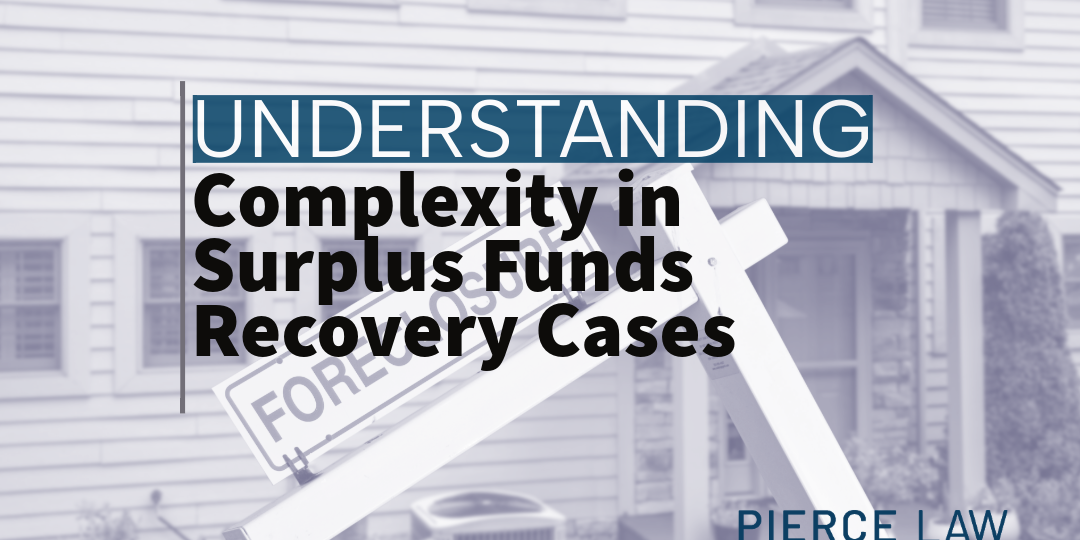Understanding Complexity in Surplus Funds Recovery Cases in North Carolina
Detailed Answer
When a foreclosure sale in North Carolina brings in more money than the debt owed, the extra amount becomes “surplus funds.” Recovering those funds can seem straightforward at first. However, multiple legal requirements often make the process complex.
Under North Carolina law, the clerk of superior court handles foreclosure surplus. The clerk holds the funds and must publish notice of the availability of surplus in the official county publication. See N.C. Gen. Stat. § 45-21.32.
Once notice issues, anyone who claims an interest in the property or its proceeds may file a written claim with the clerk. The statute sets a strict deadline. Claimants must submit their claim within six months after the date of sale. Claims filed late face dismissal by the court. See N.C. Gen. Stat. § 45-21.33.
Several factors add complexity:
- Multiple claimants. Homeowners, junior lienholders, and judgment creditors may all seek the same surplus.
- Priority rules. State law ranks claimants. Secured liens and statutory costs often take precedence over unsecured debts.
- Proof requirements. Each claimant must provide documentation proving their interest and the amount owed.
- Hearing procedures. If the clerk receives competing claims, the court schedules a hearing to determine who gets what share.
- Fee deductions. Administrative and legal fees may come out of surplus before distribution.
Failure to follow these rules can lead to denied claims or costly court battles. You need to gather chain-of-title documents, lien instruments, and judgment records. You also must watch the six-month deadline closely. If you miss it, you lose any right to those funds forever.
Key Steps to Recover Surplus Funds
- Monitor the foreclosure sale report to learn when the sale occurs.
- Watch the publication for the clerk’s notice of surplus funds.
- Prepare and file a written claim before the six-month deadline. Include proof of debt and property interest.
- Serve notice on all potential claimants as required by the clerk.
- Attend any hearing the court sets to resolve competing claims.
- Review the clerk’s distribution order and object promptly if you disagree.
- Collect your portion after the court authorizes the clerk to distribute funds.
Call to Action
Surplus funds recovery involves strict deadlines and detailed proof. Pierce Law Group’s attorneys guide you through each step. Contact us today to discuss your situation. Email us at intake@piercelaw.com or call us at (919) 341-7055.


